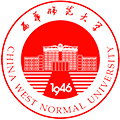Study in China West Normal University About China West Normal University & Study in cwnu
About China West Normal University
China West Normal University (CWNU), a Sichuan provincial key university high ranking tertiary institution, has been striving, over the past 6 decades, to "be a cornerstone in education in Sichuan Province, serving China’s Western regions as well as the rest of the country". The education philosophy embodies teachers’ devotion to professional ethics and to the student as a whole person in intellectual, professional, moral, cultural, social and physical spheres. CWNU has now evolved into a comprehensive normal university featuring teachers’ education and development.
Since its founding in 1946, the University has transitioned through many improvements from the privately run Northern Sichuan College of Workers and Peasants, to today’s modern and progressive tertiary institution "China West Normal University" .
Currently CWNU consists of two campuses, a new campus with a magnificent location and the original one with charming features, covering a total area of 2,500 mu with a developed area of 903,400 square meters. The university has many different kinds of functional classrooms, with an area of 104,000 square meters. An experimental building has an area of 110,000 square meters, including respective laboratory buildings for both Arts and Science colleges, college of Fine Art, college of Music, a school-owned museum, and a Specimen Building. In addition, two libraries house a total collection of 2,226,000 volumes and 7,740 varieties of magazines and newspapers. CWNU is fully equipped for extracurricular student life, from the student dormitories and five convenient dining halls or cafeteria, to various teaching and training facilities for physical education, including track-and –field stadiums, multifunctional gymnasiums, courts, playing fields and swimming pools.
CWNU has embarked upon a cooperation with higher education institutions and research institutes in the U.S., France, Japan, Canada, New Zealand, Singapore, South Korea, Bolivia, Taiwan and Hong Kong, promoting the exchange of students. Now CWNU has signed inter-collegiate cooperation agreements with 7 SUNY (State of University of New York ) branches, Ithaca College, Eastern Mennonite University, USW ( the University of Suwon) of the South Korea and colleges and universities in the Taiwan area.
School Facilities And Teaching Achievements
CWNU has more than 2100 faculty and staff members among whom 19 professors entitled to State Council-sponsored special allowance, 1 professor as the national-level middle-aged & young expert with distinctive academic contributions, 1 professor as the member on National Social Sciences Fund Discipline Evaluation Board, 1 professor as the member on MOE Professional Degree Master Education Steering Committee, 15 professors as provincial pacesetters for academics & technology, 11 professors as Sichuan Provincial experts with distinctive contributions, 4 professors rated by the MOE as New Century Talents, and 7 provincial model teachers.
CWNU, currently comprised of 23 colleges, now offers a wide spectrum of programs leading to Master’s degrees in education, agriculture, sports, and higher education, under the umbrella of 15 first-tier disciplines and 102 second-tier discipline. The University currently offers 55 undergraduate specialties majors and 16 associate degree programs, including 7 national-level distinctive specialties, a sports training specialty approved by MOE to conduct independent entrance examination and recruitment, 1 national-level teaching team, 1national-level excellent course, 16 provincial distinctive undergraduate specialties, 7 provincial teaching teams, and 41 provincial excellence courses. Empowered by such academic strength, our teachers have earned a total of 39 national and provincial teaching awards for higher education, including 2 national second-rate awards.
By assigning to top priority to academic research and diversity, CWNU has developed several distinctive specialties such as wild animals and plants protection & regulation, Chinese classical literature, zoology, theory of political science, Marxist theory, studies of historical literature, studies of higher education, organic chemistry, and theoretical physics. From 2009 to 2010, the faculty members secured 125 research projects at provincial, ministerial or national levels in natural and social sciences, and published over 7,209 academic papers in domestic and international academic journals among which 855 were accepted by SCI, EI and ISTP SSCI and 1068 by CSSCI and CSCD. In a space of three years, 164 academic works were published, and 44 national and provincial awards were granted to our faculty members. The major awards are listed below by year: 1st prize for Sichuan provincial evaluation of technological progress, 1st prize in Sichuan provincial 13th evaluation on excellent research work in philosophy and Social sciences, 3rd prize in the MOE evaluation of research achievements in social and humanity sciences in 2009; 2nd prize for Chinese national evaluation of technological progress in 2010; 1st prize granted by the General Administration of Sport of China in the evaluation of research achievements in sport-specific philosophy and human sciences, 2nd and 3rd prize in the 4th evaluation of research products in education science, the acceptance of one research into the Treasury of Chinese Sciences, and the success of “Coordination and Study on Nanbu Archives in Qing Dynasty” in the bid for National Social Science Foundation Major Project in 2011.

